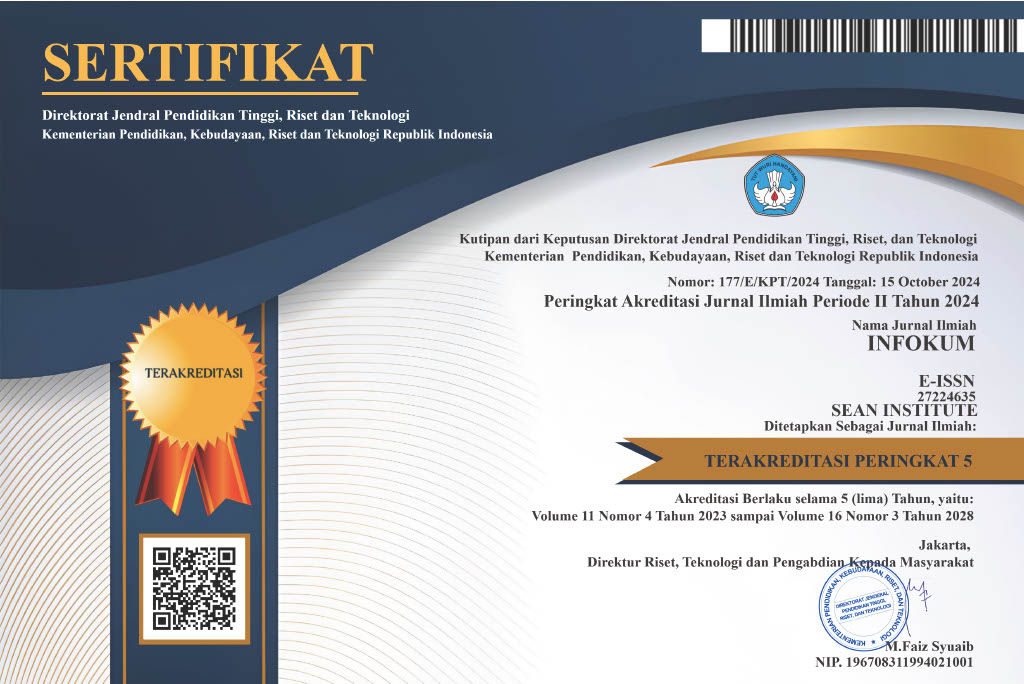Combating Corruption in Indonesia: Digital Evidence in Criminal Prosecution
Abstract
This study investigates the role and effectiveness of digital evidence in the criminal prosecution of corruption cases in Indonesia. With the growing prevalence of technologically mediated corruption ranging from encrypted financial transactions to manipulated digital documentation traditional legal frameworks face substantial challenges in ensuring evidentiary reliability, procedural fairness, and institutional coordination. Employing a qualitative case study approach, this research draws on in-depth interviews and documentary analysis to examine the institutional, legal, and technical dimensions of digital evidence utilization within the Indonesian justice system. Findings reveal persistent barriers, including the absence of comprehensive legal standards for digital evidence authentication, limited forensic capacity among law enforcement personnel, and fragmented inter-agency cooperation. These structural limitations not only hinder prosecutorial effectiveness but also compromise the integrity of judicial outcomes. In response, the study proposes a multi-layered framework encompassing regulatory reform, capacity-building, and procedural standardization to facilitate the lawful, secure, and effective use of digital evidence. By integrating digital forensic tools into legal practice, Indonesia’s anti-corruption enforcement can enhance prosecutorial accuracy, judicial trust, and overall institutional resilience.
Downloads
References
[2] E. Casey, Digital Evidence and Computer Crime: Forensic Science, Computers and the Internet, 4th ed. Cambridge, MA: Academic Press, 2020.
[3] M. Fauzan, “Digitalization of financial governance and its impact on corruption control mechanisms,” Asian Journal of Governance and Law, vol. 12, no. 1, pp. 22–39, 2024.
[4] I. Harahap, “Strategi pembuktian perkara korupsi di era digital: Studi terhadap praktik pengadilan tipikor,” Jurnal Ilmu Hukum Indonesia, vol. 9, no. 1, pp. 1–16, 2023.
[5] M. Hutagalung, “The admissibility of electronic evidence in Indonesian criminal trials,” Indonesia Law Journal, vol. 6, no. 2, pp. 76–89, 2022.
[6] S. Lee and H. Kim, “Enhancing forensic readiness in the public sector: A legal and organizational perspective,” Journal of Digital Forensics, Security and Law, vol. 16, no. 1, pp. 34–49, 2021, doi: 10.15394/jdfsl.2021.1622.
[7] M. Lubis, “Fragmentasi koordinasi antar lembaga penegak hukum dalam pembuktian digital,” Jurnal Kebijakan dan Hukum Pidana, vol. 11, no. 3, pp. 207–224, 2021.
[8] R. Panjaitan, “Kesiapan sistem hukum Indonesia terhadap bukti elektronik dalam perkara pidana,” Jurnal Yudisial, vol. 12, no. 1, pp. 57–74, 2019.
[9] T. Prasetyo, “Evaluasi penegakan hukum terhadap kejahatan korupsi berbasis teknologi digital,” Jurnal Penegakan Hukum, vol. 13, no. 2, pp. 101–118, 2021.
[10] D. Setyawati and Y. Rizal, “Legal barriers in adopting digital evidence in corruption cases in Indonesia,” Jurnal Hukum & Pembangunan, vol. 50, no. 3, pp. 345–360, 2020, doi: 10.21143/jhp.vol50.no3.2558.
[11] H. Sulistyo, “A legal framework for the use of digital forensics in Indonesian courts,” Journal of Law and Technology Review, vol. 7, no. 1, pp. 88–104, 2020.
[12] N. Wulandari and T. Susanti, “Legal procedures and the use of digital forensic evidence in corruption trials,” Journal of Contemporary Law, vol. 15, no. 1, pp. 54–67, 2020.
[13] Y. Wijayanto, “Digital evidence: Implementation challenges in anti-corruption prosecutions in Indonesia,” Journal of Legal Reform, vol. 8, no. 2, pp. 134–150, 2022.










